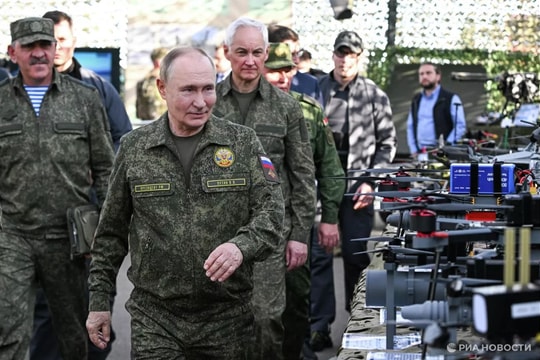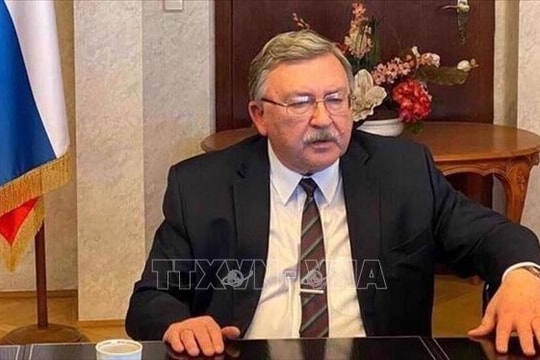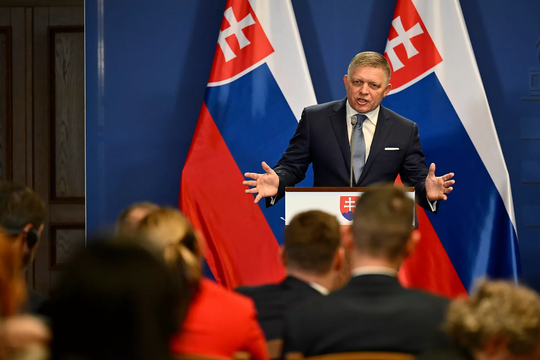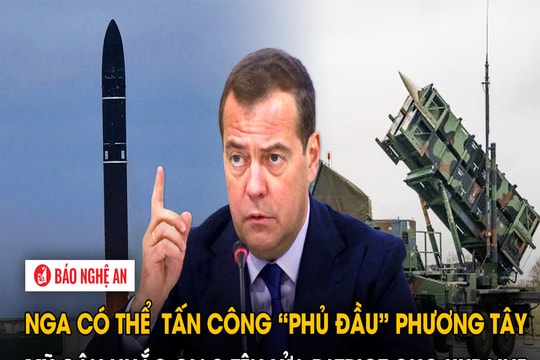Reasons for the West's division in supporting Ukraine against Russia
More than 100 days since Russia launched its special military operation in Ukraine, the rifts between Western countries in support of Ukraine and against Russia have become increasingly clear.
French President Emmanuel Macron has become the latest figure to draw criticism for a comment about Russia, as the conflict in Ukraine enters its fourth month.
| Tissue |
Ukrainian soldiers prepare anti-tank weapons at a position near Bakhmut, Donbass region on June 5, 2022. Photo: Reuters |
Speaking to French media on June 4, President Macron said: "We must not humiliate Russia, so that when the fighting stops, we can build a way out through diplomatic means."
Mr Macron believes Russian leader Vladimir Putin needs to be given a way out of what he calls the “historic mistake” of launching a military campaign in Ukraine.
Mr Macron's remarks sparked new tensions with Kiev amid Mr Zelensky's skepticism about Mr Macron's attempts to persuade Mr Putin to end the military campaign.
Differences in approach to Russia
After initial successes in showing solidarity and support for Ukraine, divisions among Western countries have become increasingly evident.
That divide says as much about the psychological scars of a century of war on the continent as it does about the current conflict. It also highlights the unanswered questions about how the fighting will end, as it enters its fourth month of stalemate in eastern Ukraine.
On one side are France, Germany and Italy, which have favoured talks and a ceasefire rather than unconditional military support for Ukraine. These countries have been accused of being reluctant to send weapons to Kiev or being too worried about what might happen after the Russia-Ukraine conflict ends.
By trying to act as trusted intermediaries, these countries are making a false compromise in a war with Russia, some officials say — a move that could make Moscow think the West's resolve is wavering.
“Germany, France and Italy are all struggling with the shadow of the past,” said French analyst Fabrice Pothier, a former NATO policy-making official.
Mr Macron's desire to "not humiliate Russia" is believed to be a reference to the harsh punishments imposed on Germany after World War I, which some historians say facilitated the rise of the Nazis and led to World War II.
Meanwhile, Germany has always been inclined towards pacifism, stemming from its history since World War II.
Unlike France, Germany and Italy, Eastern European countries, including former Soviet states, have taken a “at all costs” approach to Ukrainian unification. However, many believe that their stance could lead to a “forever war” in Europe and escalate tensions with Russia.
“We’ve done very well so far, but I’m not optimistic about what’s going to happen next,” said John C. Kornblum, the US ambassador to Germany during the Clinton administration. “With the nuclear sword, Russia has scared the West.”
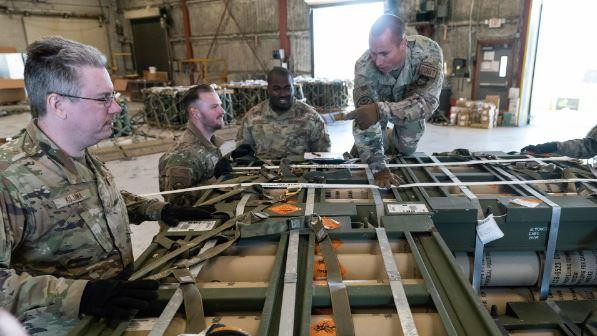
US changes tactics in Ukraine?
07/06/2022
According to Mr. Kornblum, what the US and Europe have done well so far are sanctions and embargoes against Russia, as well as Finland and Sweden officially applying to join NATO.
However, cracks are becoming increasingly apparent. The EU oil embargo has met with strong opposition from some countries, notably Hungarian Prime Minister Viktor Orban. NATO’s expansion into northern Europe has also been blocked by Türkiye.
Division on arms supplies to Ukraine
The most obvious divide among Western countries is over arms supplies to Ukraine.
The Italian government is divided over sending more weapons to Ukraine. One of the most vocal opponents is Matteo Salvini, leader of the far-right League party, which has signed a cooperation agreement with Russian President Vladimir Putin’s party.
Last week, Germany announced it would provide Ukraine with state-of-the-art radar and air defense systems. However, German Chancellor Olaf Scholz has been criticized for being slow to deliver weapons to Kiev and refusing to acknowledge that “Ukraine must win.”
Asked about his reluctance, Mr Scholz said he was just trying to “act wisely with a clear head”.
Most Eastern European countries have taken the lead in sending arms to Ukraine. These countries fear they could be the next target after Ukraine.
Along with the UK, the US recently agreed to supply Ukraine with advanced missile systems. Notably, President Joe Biden set the condition that US weapons would not be used to attack Russian territory.
The condition of ensuring Russian territory is not attacked by US weapons is a wise move to prevent escalation, but some see it as a clear signal to the Russian president that he has made the West nervous.
According to some European observers, the US conditions are more easily accepted than those of Germany or France, because Ukraine believes that Berlin and Paris are still not enough.
Gustav Gressel, a former Austrian defense ministry official and now a senior policy fellow at the European Council on Foreign Relations, said that if conditions like Biden's were imposed by those European countries, "there would certainly be a furor."
“If German Chancellor Scholz also puts forward similar conditions, it will ring alarm bells about appeasement [towards Russia],” Mr. Gressel commented./.

